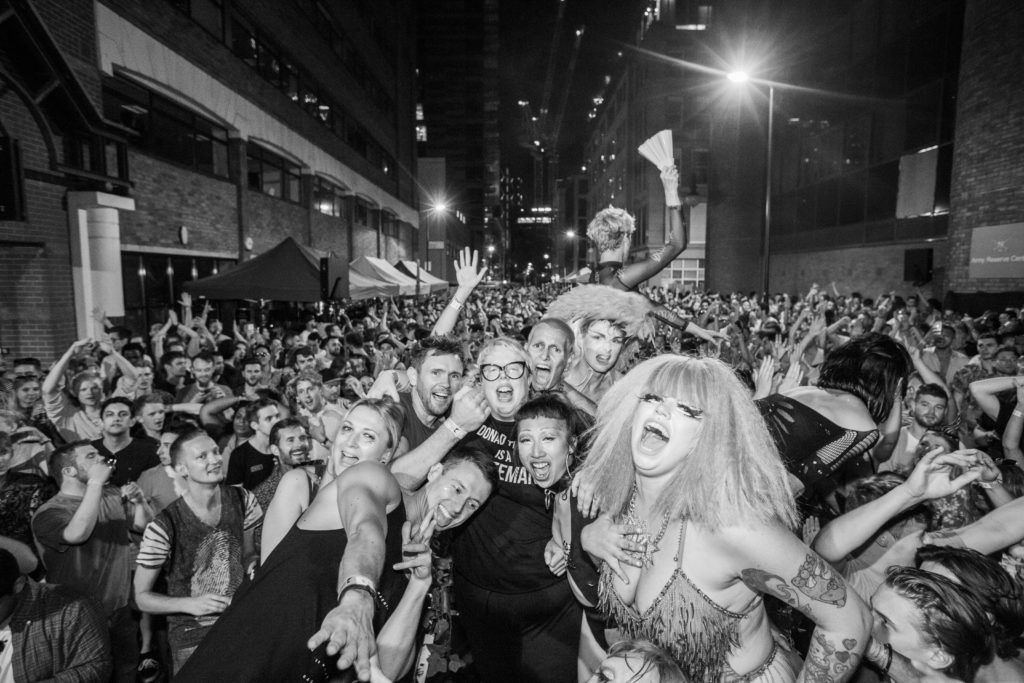
What can be said about Marea Stamper that hasn’t already been said? Better known as The Black Madonna, the Kentucky native crafts eclectic electronic sets that have garnered her well deserved attention from around the world. It doesn’t matter if she’s playing to a crowd of six thousand festival goers in the English midlands or at her hometown club for three hundred people, Stamper provides an energy that many would call infectious.
But it’s not just her musical ability that’s earned The Black Madonna a hefty reputation worldwide. Having grown up in Salvation Army daycares, fighting against the struggle of poverty, the change in her lifestyle induced by being a top class house music DJ has had no impact on her ability for empathy and her sense of humility has laid the foundation for amazing work beyond the DJ booth. Although she’s reluctant to label herself an activist, Stamper has been vocal in speaking out on issues close to her heart, and has channelled her passion into various charities and NGOs such as Help Refugees, Say It Loud and Choose Love. She’s now embarking on a tour to raise money and awareness for the plight of those seeking asylum on the grounds of persecution for being LGBTQ+ in their home countries.
On a Berlin stop in her international jet-set, we met with the DJ to discuss her charity work, the changing face of dance music as well a few tricks and tips for staying sane in this whirlwind of a profession.
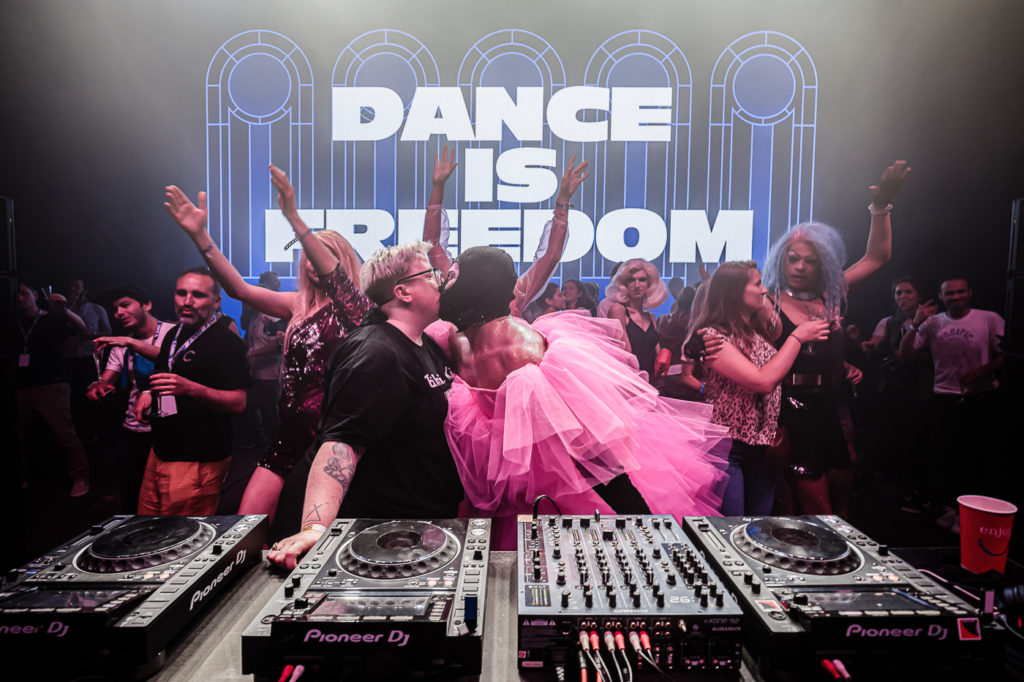
Why do you think dance music is able to communicate such strong messages often without lyrics?
I think that some of what happens happens by osmosis. Sometimes there are words, sometimes there aren’t. I play a lot of disco and there may be some explicit value there in the lyrics, but I also think just trying to be the kind of person that you are and doing things that matter to you is important. Over the years, people have gotten to know me (to the degree that you can know someone you don’t really know) and people know what I do, what I stand for, whether I do it perfectly or not. Today I am more interested in serving rather than focusing on being a leader or trying to bring anyone to my point of view. I like to see how much I can get done and have a much more service oriented point of view. Maybe my touch has gotten a bit softer as I get older too.
You’ve been very open about your struggle with mental health as a result of your profession. What are the practices, or rituals that help you most?
It’s funny to be asked that right now, in the depths of jet lag as I have been bounced between continents all month and my brain is a bit like scrambled egg. I think that one of the first things is to know when to say no—it’s so crucial and I really struggled for a long time. Also, for me, jet lag, exacerbates any kind of emotional problems I might have. I am already somebody who has struggled with anxiety and depression since college. When I started to add jet lag and all of the other things that come with touring into the mix, it really amplifies those feelings for me in a way that is really problematic.
I think something that people need to understand is that every study that there is on touring proves that it is bad for your mental health and and not so good for your physical health either. It’s important to stay in close contact with a doctor; one who takes your work seriously in a way that they would understand if you were a cyclist of a gymnast or whatever; someone who understands the specific challenges of being put in such extreme conditions. I was very lucky to have a good GP when I started touring who treated me for anxiety and that transitioned into a bunch of things that arose as a normal part of being on tour.
I would say above all, recognise what it is that you need and make sure that you get it. That sounds simple, but it really isn’t. You really have to be an advocate for your own health and push for it because touring is a type of disease that comes with its own set of medical problems, mental situations and all kinds of stressors. Also social media. I would say its good for everyone to get off it. People can be so cruel, you can walk on water and there will be somebody on twitter saying it’s because you can’t swim.
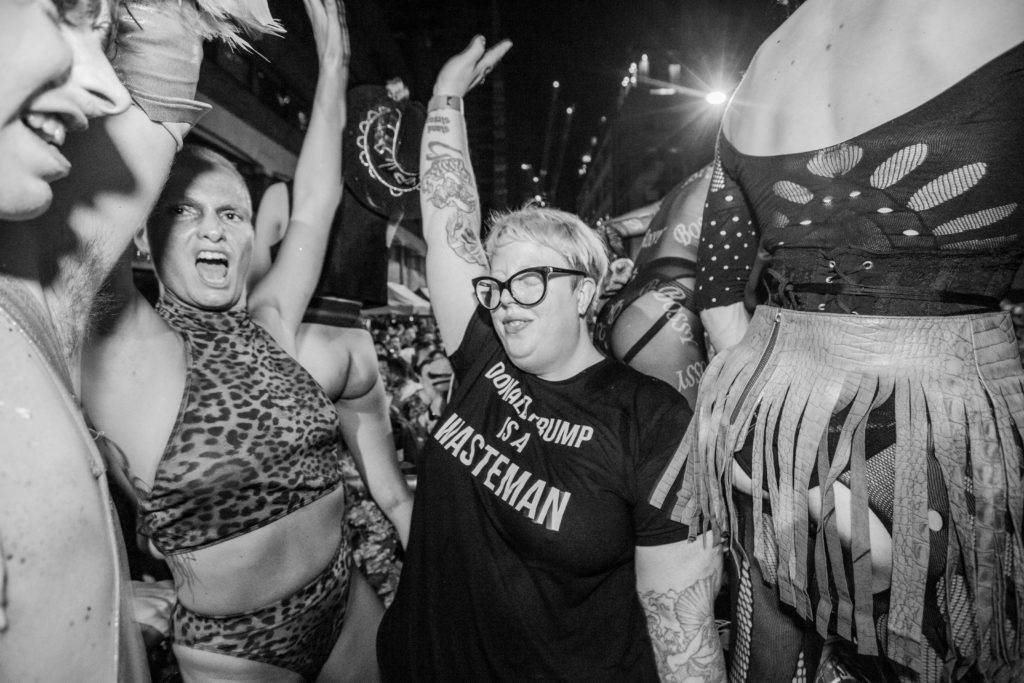
The last time I saw you play was at Meneer Nieges, a much smaller venue than I expected. How does playing smaller gigs compare to the huge festivals you’re getting offered on the back of your status?
I think you just can’t get too caught up in the bullshit, you go to know where your real people are, at the end of the day it’s about playing music with our friends and loved ones and its not only my honour but my pleasure to kick back to be able to play with Rahaan and Marcel and I really had the best time. I felt good because I got to be with everybody. That’s the world that I come from—playing music for the pure joy of hearing it. There’s something special about being in a tiny room with 300 friends. It’s just a different thing when you can see people’s feet tapping on the floor.
You take an active role in charity work but don’t see yourself as an activist, is that right?
I think one of the most important things is drawing a line between activism and what I do. When we talk about activists, I like to think of those people as my bosses. My job is to take instructions and to do the best that I can to help those who are truly doing the work and the organising—which is an art form in itself—with the tools that I can provide. Namely, I’m good at doing what I’m told and most of the time that involves yelling a message louder through a microphone.
That said, I think that you only get to the point where you’re as crazy as I am and maybe as committed to the very essence that I am committed to through a personal connection.
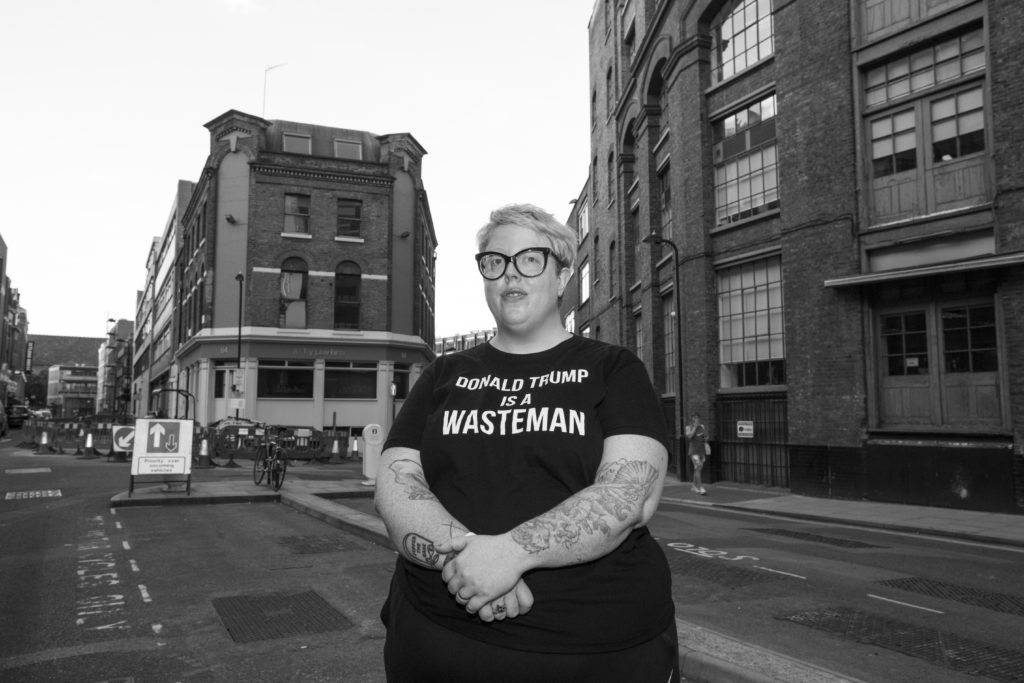
What’s your personal connection to the charities you support?
Through my travels as a DJ, I started to come into contact with things that used to only exist through the news. They became a real things, real places, real people. I met people and visited their homes and sat down to share a meal with them and very quickly their struggles became personal. That’s what happened to me in Uganda. I made friends with people who were fleeing, seeking asylum from their home country because they were gay. I got deeply involved with them personally and then financially because I was witnessing first hand a situation where people had to leave their home, with their child, to evade persecution.
And you felt a responsibility to help financially…
Right. I’ve always been the kind of person that has given to charities, even when I didn’t have anything to give, because growing up poor has charged me with the responsibility to help where I can. Yet the profound experience of watching loved ones packing up their lives and leaving their home makes all my personal experiences seem pale and small in comparison. This was a pivotal moment that touched me in a way that nothing else has and that just unfolded into me working with Help Refugees, Say It Loud and Choose Love.
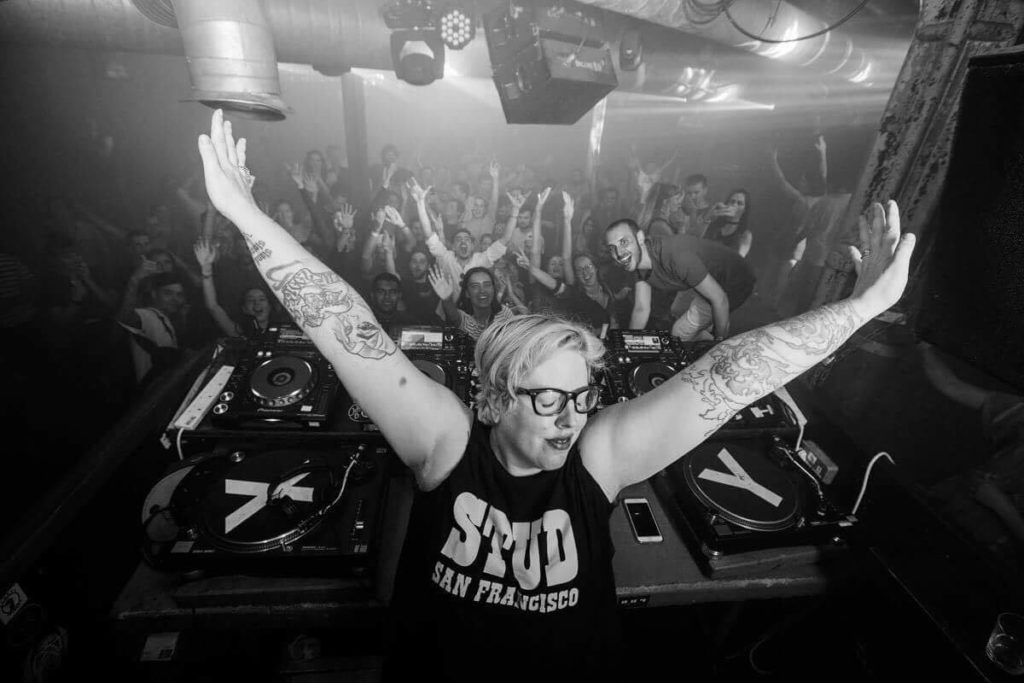
Do you think the LGBTQ+ safe spaces cultivated by ravers are under threat as dance music gains popularity and artists like Peggy Gou, for example, are becoming more mainstream?
I want to be cautious when answering this as I don’t want to speak for anyone who lived in the generation before—the foundational generation had a completely different set of experiences than I did as a raver, which was a very different collision of groups of people. What I do know anecdotally from my friends in Chicago is that the very beginnings of dance music might not have been safe. These spaces that were meant to be islands of inclusion were actually a threat to club-goers, who bore great risk in trying to find this freedom.
Keeping that in mind, I do think its admirable that the very youngest generation of dancers and ravers take the decision of making safer spaces very seriously. I would say that at very underground events, there are people who are doing things to move the ball towards the end goal and that to me is really incredible. These are the people that I’m keeping my eye to see what happens next.
What does 2020 have in store for The Black Madonna?
My album is almost done and I’ve been lucky enough to work with a huge cast of incredible characters on this. I can’t reveal it all yet it’s something I’ve been working on for about 3 years. Behind the scenes, between tour dates all because I’ve been producing it myself and it’s been a long journey. But it’s almost done and I’m excited to see how that unfolds in the next year.
The Black Madonna’s We Still Believe: Choose Love Tour is on now. To find a show in your area click here.


 68
68